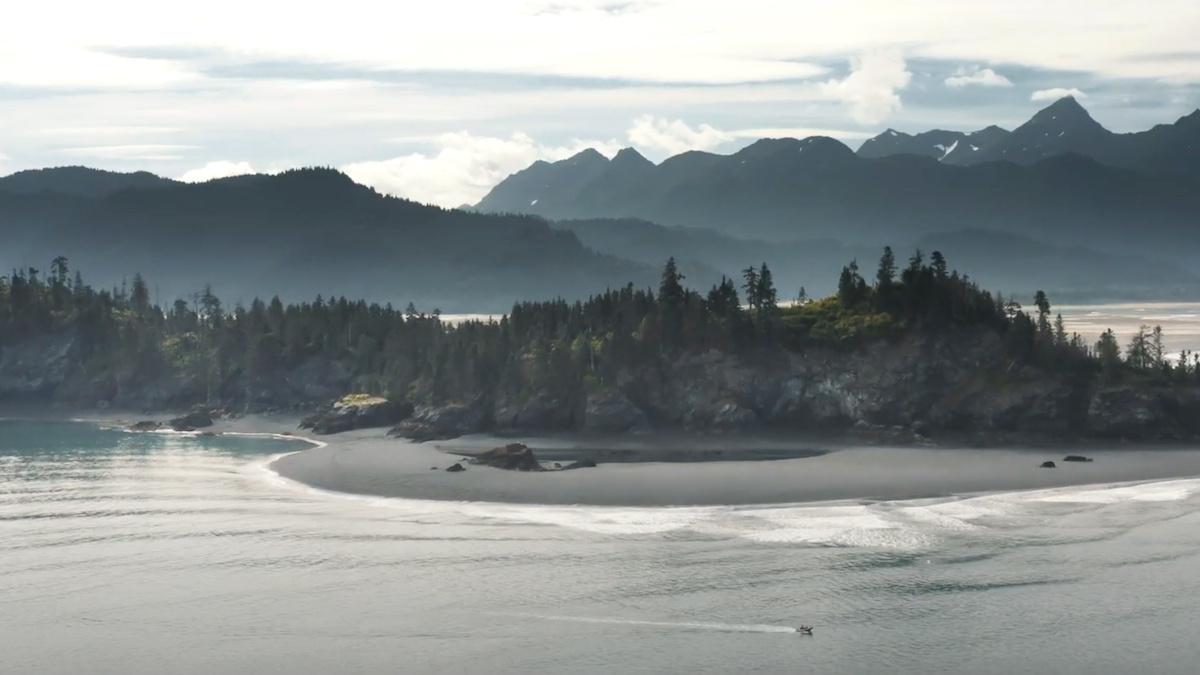
Trump Admin Reverses Obama-Era Restrictions on Pebble Mine Near Alaska’s Largest Salmon Nursery

The Bristol Bay watershed supports the world's largest sockeye salmon fishery. World Wildlife Fund / YouTube
Officials from the Trump administration announced last week that a plan to open a copper and gold mine that threatens Alaska’s largest salmon nursery would not pose a serious environmental threat.
This is a sharp about-face for the U.S. government, after the Obama-administration cited environmental concerns and the threat to the spawning ground of the region’s prized sockeye salmon when it put the brakes on the project in 2012, and again when the U.S. Environmental Protection Agency (EPA) expressed concerns about the salmon in 2014.
This new move represents the latest salvo in the Trump administration’s thorough and systematic dismantling of environmental efforts and regulations from the previous administration. When it comes to the Pebble Mine, as The Washington Post reported, a final environmental analysis issued Friday by the U.S. Army Corps of Engineers found that the mine — which targets a deposit of gold, copper and other minerals worth up to 0 billion — “would not be expected to have a measurable effect on fish numbers” in the Bristol Bay watershed, which supports the world’s largest sockeye salmon fishery.
Opponents of Pebble Mine criticized the review process as rushed, flawed, and favorable to the mine developer, as the Anchorage Daily News reported.
In a joint statement, Alannah Hurley with United Tribes of Bristol Bay, Norm Van Vactor with Bristol Bay Economic Development Corp., Ralph Andersen with Bristol Bay Native Association and Katherine Carscallen with Commercial Fishermen for Bristol Bay said the final review “completely fails to adequately assess the impacts of Pebble on Bristol Bay’s waters, salmon, and people,” according to the Anchorage Daily News.
The mine will be located in two watersheds that feed fish-spawning rivers. Opponents say traces of heavy metals and other contaminants left from the mining operation pose risks if they leach into groundwater or if dams holding back the tailings fail in an earthquake, as The New York Times reported.
Opposition to the mine has been widespread, both in the region and statewide, for nearly two decades, with concerns about environmental damage and the potential harm to the area’s salmon, which are the main traditional subsistence food for many of the Native Alaskans in the region and the crux of both sport-fishing and commercial fishing in the area, according to The New York Times.
The open-pit mine calls for a large dammed area to trap the tailings from mining operations that would be toxic to the fish. It also calls for the 80 new miles of road to carry the concentrated tailings away to Cook Inlet. Additionally, the mining company wants to build a 165-mile natural gas pipeline for a generating plant to power the operation.
According to the Corps, the operations would permanently destroy more than 2,200 acres of wetlands and waters, and 105 miles of streams. The EPA indicated earlier this year that it would not block the project at this point, as The Washington Post reported.
Opponents have argued that the environmental impact statement was not rigorous enough, as they highlighted hazardous risks, including the potential for a tailings dam failure that could contaminate waterways used by spawning fish and harm the Bristol Bay fishery, which employs about 15,000 people. They also note that Alaska is the most seismically active state in the nation, and critics said the Corps had not taken sufficient account of the risk of earthquakes or volcanic activity, and that its analysis of the dam designs was inadequate, particularly since a few of the dams would be hundreds of feet high, as The New York Times reported.
Taryn Kiekow Heimer, who leads the the Natural Resources Defense Council’s effort to stop the project, told The Washington Post that the administration’s push to greenlight a massive project that is opposed by neighboring Indigenous communities amounts to environmental injustice.
“It’s especially embarrassing for the government and appalling given the current social context we are in,” she said of the accelerated approval process. “It’s just another example of the entrenched and systemic racism that this government is showing to people of color and indigenous people in particular.”
The Pebble Mine, like logging in Alaska’ Tongass forest, the Keystone XL pipeline, and the Dakota Access pipeline, is a gift to industry that the Trump administration has tried to fast track. All those projects could be reversed if a Democratic administration takes office in January, according to The Washington Post.
- Pebble Mine Threatens One of the Last Great Salmon Rivers ...
- EPA Likely to Approve Mine That Threatens Alaska's Largest ...
- Trump Pushed for Mining Project That Could Destroy Alaska Salmon ...
- Pebble Mine Denied Permit in Victory for Tribes and Planet

 233k
233k  41k
41k  Subscribe
Subscribe 